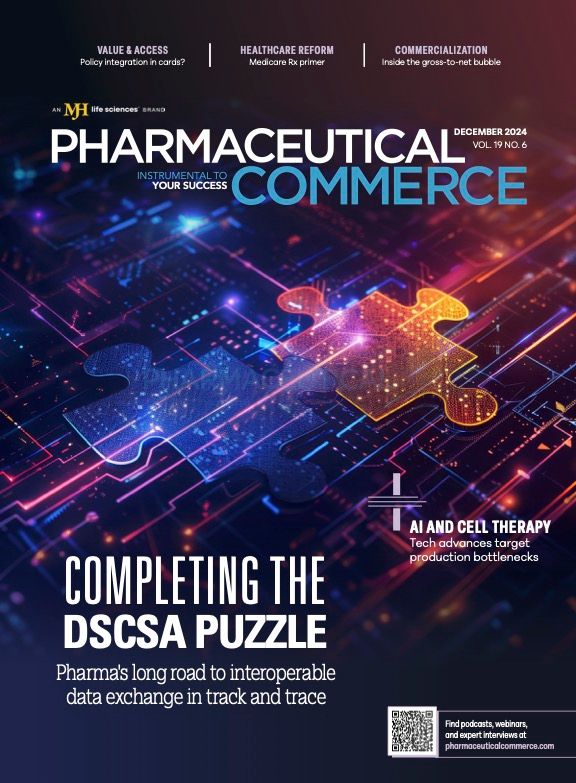Policy and Population Health
Is the potential of a more formal policy integration for health issues and disease prevention a scary suggestion or a good idea?

In exchange for his support of Donald Trump’s candidacy for president, Robert F. Kennedy threw his own name into the mix, and has officially been nominated by the president-elect as the as next Secretary of Health and Human Services. His stated objective is to focus on food safety, referencing the proliferation of processed foods and additives, and tackle the increase in chronic diseases.1 However, given RFK’s reputation as a vaccine denier, putting him in this position could scare some. Setting RFK’s candidacy aside, is there a need to develop a better integrated policy that addresses population health issues and disease prevention with a critical look at our food supply and breaking out of food and pharmaceutical silos?
Our food supply
There is significant evidence that many of the ingredients in food products that we find on the shelves in supermarkets are simply unhealthy. Widespread consumption of high-fructose corn syrup has contributed to multiple health consequences, such as insulin resistance, obesity, liver disorders, and diabetes.2 Poor metabolic health has further been linked to diabetes, cancer and Alzheimer’s disease.3 Many other ingredients in our food products have been found to have a negative impact on our health. Propylene glycol, an emulsifier, is widely used in, for example, low-fat salad dressings and the main ingredient in some deodorants. It can cause very severe allergies, which do not clearly show up in allergy skin tests.4,5 Ironically, most of the dermatological prescription ointments used to treat the resulting eczema also contain propylene glycol. There is a long list of food ingredients that the FDA deems non-toxic, but that are, nevertheless, causing damage. California has started to ban6 a number of ingredients from public school foods and beverages. In my opinion, the FDA seems to act as a follower rather than a leader in this area.
The cost of a failed health policy
As mentioned, metabolic disease is thought to be a major contributor in cardiovascular disease, cancer, and Alzheimer’s disease. With a third of the US population being obese, and an additional third overweight, the need for good treatments is humanistically and economically crucial. Alzheimer’s disease alone is projected to bankrupt Medicare,7 state Medicaid programs, and individual patients if effective treatments are not found.
Role of prescription drugs
The pharmaceutical industry has been able to provide many new treatment options for debilitating diseases. Some anti-cancer drugs have been able to significantly alter the course of the disease. Progress has been made with Alzheimer’s disease drugs as well, but we are still far off from widespread meaningful treatment solutions for these and many other diseases, some of which are believed to be primarily caused by our unhealthy lifestyles and the foods that we consume.3
The glucagon-like peptide-1 (GLP-1) agonists semaglutide and high-dose liraglutide are FDA-approved drugs to help the treatment of obesity. Beyond obese patients, these drugs have helped many overweight and individuals reverse the impact of poor nutrition and lifestyle habits, but we need to ask ourselves whether weight losses are sustainable in the long term and whether they further accommodate poor diets.
Integrated approach toward health
Provider organizations are increasingly considering the need for social care for patients in addition to their medical treatments, emphasizing relationships between housing, social setting, and therapy outcomes. Social care programs, such as the National Diabetes Prevention Program, assist patients with getting access to food, housing, healthcare, and other social services.
On a government level, we may also need a better integration between all health-related policies, including food (FDA-approved ingredients and related communications), prevention- and treatment-focused medical care, and sports/recreational investments. Individuals have a personal responsibility to make the right choices, but today, choices may simply not be available or insufficiently communicated and incentivized. Is clear labeling enough, or should certain ingredients (such as the aforementioned high-fructose corn syrup) be banned from foods?
The pharmaceutical industry is currently benefiting from the GLP-1 hype and it may save lives of individual patients. However, what will be the longer-term impact on population health? The next generation of obesity drugs may be very safe and effective, but wouldn’t it be better if less than two-thirds of the population need them?
About the Author
Ed Schoonveld is a value & access advisor for Schoonveld Advisory and author of The Price of Global Health.
References
1. Samuels B. Trump Says He’ll Let RFK Jr. ‘Go Wild’ on Health and Food in Potential Second Term. The Hill. October 27, 2024. https://thehill.com/homenews/campaign/4956319-trump-says-hell-let-rfk-jr-go-wild-on-health-and-food-in-potential-second-term/
2. Mai, B.H.; Yan, L.J. The Negative and Detrimental Effects of High Fructose on the Liver, With Special Reference to Metabolic Disorders. Diabetes Metab Syndr Obes. 2019. 5 (12), 821-826. https://pubmed.ncbi.nlm.nih.gov/31213868/
3. Attia, P. Outlive: The Science of Art and Longevity. https://peterattiamd.com/outlive/
4. The Truth Behind Propylene Glycol. Euronews. January 7, 2019. https://www.euronews.com/green/2019/01/07/the-truth-behind-propylene-glycol#:~:text=Allergy%20risk%20of%20propylene%20glycol&text=The%20US%20Food%20and%20Drug,reported%20in%20the%20scientific%20literature
5. Wick, J.Y. And the Allergen Winner is: Propylene Glycol! Contemporary Clinic. January 19, 2018. https://www.contemporaryclinic.com/view/and-the-allergen-winner-is-propylene-glycol
6. Siegner, C. California Bans More Ingredients. Food Business News. September 30, 2024. https://www.foodbusinessnews.net/articles/26905-california-bans-more-ingredients#:~:text=Beginning%20on%20Jan.,Missouri%2C%20New%20York%20and%20Washington
7. Alzheimer’s Association’s Most Expensive Disease Handout. Alzheimer’s Association. November 21, 2014. https://act.alz.org/site/DocServer/112114_Most_Expensive_Disease_Handout.pdf?docID=40161
